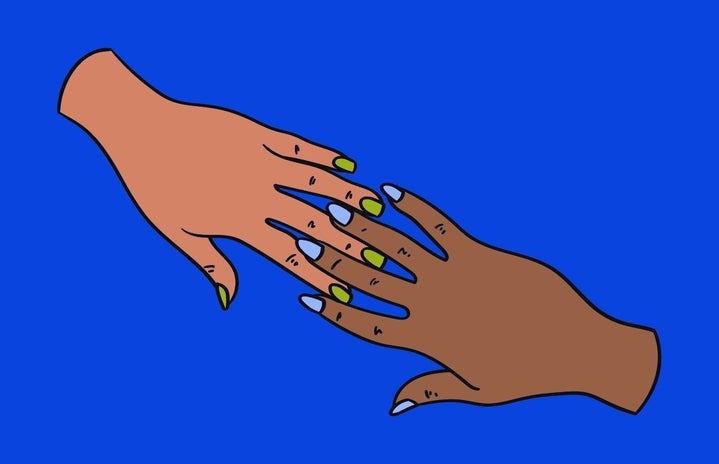We’re witnessing history unfold before our eyes. Not only are we in the middle of a pandemic, but also in a movement built on opposition to police brutality. Black Lives Matter protests have reached different cities, and even countries all across the globe, quickly becoming one of the largest socio-political activist movements. According to The New York Times, more than 15 million people in the U.S. have shown up to protests, demanding justice for George Floyd, Breonna Taylor, Ahmaud Arbery, and other Black individuals. The fight continues every day.
Racism has been prominent in our country since its creation, even though conversations have only begun heightening in recent weeks. Checking in on your Black friends during this time may feel uncertain as you figure out the appropriate way to support them. You might be thinking about what could go wrong, but you have to understand that you might, in fact, mess up. Let’s talk about ways you can care for your Black friends, without making yourself a burden.
- Recognize your privilege
-
Check your privilege and acknowledge it. White privilege is real. Asian Americans have benefitted from being the so-called model minority. Having white privilege does not mean one’s life is more important or less difficult than the other. We’re addressing the fact that some groups have been able to advance through society due to the color of their skin as well as the stereotypes set by society.
Regardless of which group you’ve been identified with, it’s time to join the group fighting for basic human rights for our Black brothers and sisters. This is not the time to stay quiet as we watch them suffer. Use your privilege the right way by amplifying Black voices and supporting Black Lives Matter.
- Direct the focus away from you
-
Keep in mind that this is not a time to prove yourself as an outstanding ally. Rather than asking if you’re doing things right and making sure you’re projecting a good image, talk about how you plan to show support for the Black community. This could include signing and sharing online petitions, taking part in protests, or making a donation if you’re able.
You shouldn’t seek approval at all in order to feel like you’re doing your part. Your acts should be genuine and unselfish.
- Listen with ears wide open
-
If you’re engaging in a discussion — or even just a casual conversation — with your friends, be sure to be attentive. Fully hear what they’re saying and pay close attention. Be mindful of how you respond. Phrases like “You’re so strong!” or “You’re so articulate!” aren’t always helpful.
There may be something you don’t necessarily agree with but avoid starting a debate. Let your Black friends express themselves without anyone interrupting them or challenging what they’re saying. Listen to their experiences with empathy.
- Educate yourself and continue learning
-
As B.L. Wilson stated in The Washington Post, Black people are not responsible for educating others about racism. That’s YOUR job to do. Wilson said, “Learning is about opening yourself up to people and experiences and seeking to understand.” You have to be willing to learn, and with that comes having an open mind.
We’re able to find information at the tip of our fingers. Google is free! You can easily do your own research. However, if you’re not sure where to start, check out these resources. Streaming services are also offering free BLM content, which you can find the list of TV shows and movies here.
- Keep the consistency of being an ally
-
Being an ally is a commitment. It’s an everyday duty. This means speaking up against injustices no matter what, whether they arise in the workplace or other group settings. For example, say something when you notice your Black colleague’s name being mispronounced or misspelled. Taking a stand lets your Black friends know that your support is sincere. While being neutral or silent seems harmless, either stance shows the wrong message, which is supporting racism. Keep supporting Black lives even when the hashtag isn’t trending.
Being a better ally is a continuous process. Caring for your Black friends and the rest of the community calls for reliability. Your commitment entails seeking information to expand your knowledge, listening with an open mind and not an open mouth, and maintaining the same energy as we continue to fight alongside the Black community.


